Masoud Ebrahimi
Safety Synthesis Sans Specification
Nov 27, 2020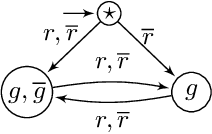
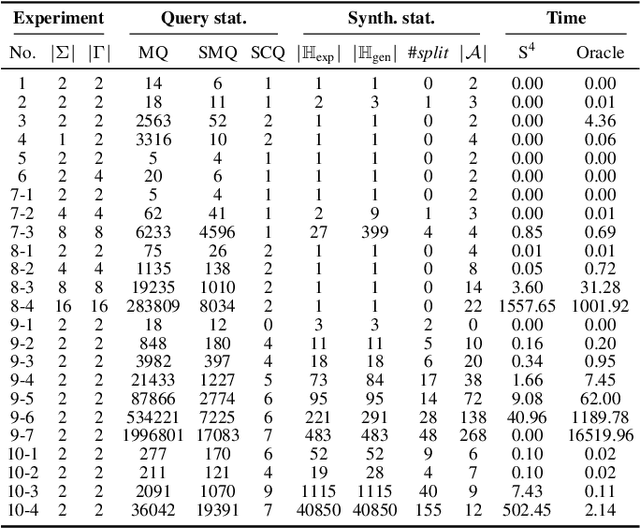
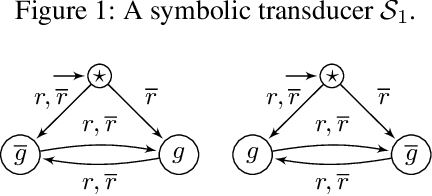
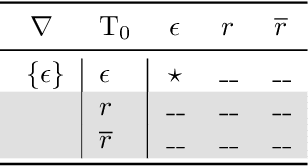
Abstract:We define the problem of learning a transducer ${S}$ from a target language $U$ containing possibly conflicting transducers, using membership queries and conjecture queries. The requirement is that the language of ${S}$ be a subset of $U$. We argue that this is a natural question in many situations in hardware and software verification. We devise a learning algorithm for this problem and show that its time and query complexity is polynomial with respect to the rank of the target language, its incompatibility measure, and the maximal length of a given counterexample. We report on experiments conducted with a prototype implementation.
Learning a Behavior Model of Hybrid Systems Through Combining Model-Based Testing and Machine Learning
Jul 10, 2019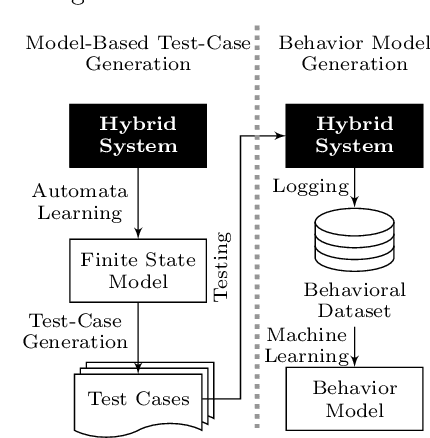

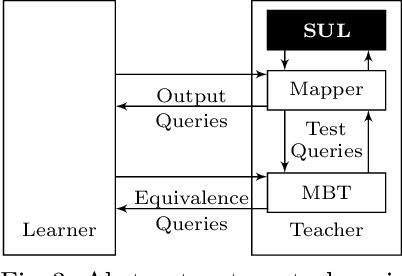

Abstract:Models play an essential role in the design process of cyber-physical systems. They form the basis for simulation and analysis and help in identifying design problems as early as possible. However, the construction of models that comprise physical and digital behavior is challenging. Therefore, there is considerable interest in learning such hybrid behavior by means of machine learning which requires sufficient and representative training data covering the behavior of the physical system adequately. In this work, we exploit a combination of automata learning and model-based testing to generate sufficient training data fully automatically. Experimental results on a platooning scenario show that recurrent neural networks learned with this data achieved significantly better results compared to models learned from randomly generated data. In particular, the classification error for crash detection is reduced by a factor of five and a similar F1-score is obtained with up to three orders of magnitude fewer training samples.
 Add to Chrome
Add to Chrome Add to Firefox
Add to Firefox Add to Edge
Add to Edge